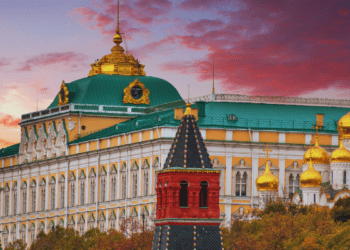

By Ken Coates and Doug Black, May 29, 2015
In a move that outsiders found shocking but that residents expected, a northwest B.C. First Nations band recently rejected a billion-dollar money-and-land deal offered by Pacific NorthWest LNG and the provincial government. Many in government were left asking: How did this happen? Is there a better way?
The decision by the Lax Kw’alaams Band demonstrates First Nations concern over environmental stewardship. A fair and sustainable deal remains the fundamental issue for community approval. It also demonstrates a simple fact: achieving an agreement on energy project development is not about the money. It’s about learning to listen to First Nations.
In many instances, including the Lax Kw’alaams, First Nations communities are not opposed to development; the desire for more jobs, own source revenue and economic opportunities for the communities remains a pressing concern.
But there is a tendency among some proponents to focus on the economic and engineering merits of a project. Terms are presented in a transactional manner with the assumption that the quantitative merits of the project will prove to be convincing to local residents.
The issue with this approach is that First Nations often don’t want to talk about transactional benefits. Fundamentally, they want to be heard and understood. It is clear they want conversations that include discussing their history and their concerns. They want to talk about their culture and their values, particularly their roles as generational stewards of the land and water.
As in non-Aboriginal communities, there will be people who oppose any kind of development, but it is possible for proponents to bring onside many of those First Nations that remain resistant to development. There are already numerous examples of impressive partnerships in resource development from Voisey Bay, Newfoundland, through James Bay in Quebec, in northern Saskatchewan, and in the forests of British Columbia.
But all conversations regarding development proposals must commence with a sincere effort to understand the First Nations’ world view and to understand the issues from their perspective. For many First Nations, the concept of resource extraction and associated economic benefits is secondary to the harmony and balance that must exist within nature and creation. The lands and waters are central to their culture and well-being. Discussions about development cannot be covered by discussions of monitoring and remediation, but must start with an understanding of which areas are sacred, central to First Nations’ history and culture, or particularly vulnerable to dramatic ecological change. We have to learn to listen to people who have lived on the lands and waters for centuries.
As companies and government now know, understanding the concept of Aboriginal rights and title is fundamental. After the enshrining of Aboriginal rights in section 35 of the Constitution, and the recent expansion of legal rights over title and the duty to consult, it is more important than ever to recognize and affirm the legal tools First Nations have at their disposal. More important, these legal rights have qualitative meaning to First Nations and are a key part of Aboriginal identity in the 21st century. First Nations are, by law and practice, partners in development from this point forward.
It is in this spirit that it falls to government and corporations to develop project guidelines around location, environmental innovation, oil spill cleanup, remediation and low-impact development. Given the centrality of environmental concerns to First Nations, these issues will be front-and-centre in any proposed deal. This does not mean the bar is unreasonably or impossibly high. First Nations are reasonable but cautious negotiators. They, much more than the government officials or corporate executives, will live with the consequences of a planning mistake or misjudgment. We would do well to take the lead from their approach to site planning and development parameters.
Listening is an essential foundation to building long lasting partnerships with Aboriginal communities. Done properly, and we have many good examples of this in Canada, this approach provides a pathway that avoids litigation and conflict. It also creates a foundation for Aboriginal prosperity — a long overdue outcome from the development of Canadian resource wealth.
The bar the First Nations set establishes a high standard for Canadian oil and gas development and transportation, potentially providing the country with a more sustainable foundation for resource development.
Canadian governments and businesses have been moving steadily closer to an open, listening-based framework for engagement with Indigenous peoples. The pieces are in place — from extensive consultations, impact and benefit agreements, revenue sharing (in much of the country), Aboriginal equity investments, jobs and training programs, and the participation of Aboriginal Development Corporations. The missing piece — and one very much under development — relates to the management of environmental expectations, protective measures and Aboriginal participation in environmental oversight.
Aboriginal rights are not the death knell of energy development. Instead, the new realities are the death knell of old ways of doing business. With the Lax Kw’alaams discussions, British Columbia, project proponents, and Canadians at large have an excellent opportunity to demonstrate that they can listen, learn and collaborate.
Doug Black is an elected Senator from Alberta and a member of the Senate standing committee on energy and natural resources. Ken Coates is a professor and Canada Research chair in regional innovation in Saskatchewan and the Macdonald-Laurier Institute’s senior policy fellow in Aboriginal and Northern Canadian Issues.




